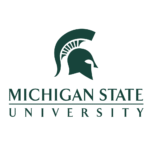-

Research Associate-Fixed…
Michigan State University
The leading platform for academic job seekers: no scams, no junk, just verified listings!
Find top research opportunities in prominent universities
Trending Research Categories
Featured Opportunities
Recent Jobs
-

Postdoctoral Scholar,…
Nipun Gulati -

Postdoctoral Scholar…
Nipun Gulati -

Assistant Professor…
Nipun Gulati -

Research Associate…
Nipun Gulati -

Assistant Professor…
Nipun Gulati -

Assistant, Associate…
Nipun Gulati -

Assistant Professor…
Nipun Gulati -

Clinical Instructor…
Nipun Gulati -

Assistant Professor…
Nipun Gulati -

Assistant, Associate…
Nipun Gulati -

Assistant or…
Nipun Gulati -

Assistant Professor…
Nipun Gulati -

Clinical Assistant…
Nipun Gulati -

Open Rank…
Nipun Gulati -

Assistant, Associate…
Nipun Gulati -

Assistant Professor,…
Nipun Gulati -

Assistant Director…
Nipun Gulati -

Professor and…
Nipun Gulati -

PhD Studentship…
ResearchTweet -

PhD Studentship…
ResearchTweet -

Ph.D. Student…
ResearchTweet -

Doctoral student…
ResearchTweet -

Doctoral student…
ResearchTweet -

PhD Position…
ResearchTweet -

Researcher –…
ResearchTweet -

Research Associate…
ResearchTweet -

Doctoral student…
ResearchTweet -

PhD (f/m/d)…
ResearchTweet -

PhD Position…
ResearchTweet -

PhD position…
ResearchTweet -

PhD/Postdoc Position…
ResearchTweet -

Research Associate…
ResearchTweet -

Research Associate…
ResearchTweet -

Research Associate…
ResearchTweet -

Research Assistant/PhD…
ResearchTweet -

PhD position…
ResearchTweet -

Postdoctoral researcher…
ResearchTweet -

PhD-researcher to…
ResearchTweet -

Doctoral scholarship…
ResearchTweet -

Doctoral scholarship…
ResearchTweet -

Doctoral scholarship…
ResearchTweet -

Doctoral scholarship…
ResearchTweet -

Doctoral scholarship…
ResearchTweet -

Doctoral scholarship…
ResearchTweet -

Postdoctoral fellow…
ResearchTweet -

PhD-student in…
ResearchTweet -

PhD student…
ResearchTweet -

PhD-student in…
ResearchTweet -

Staff scientist
ResearchTweet -

Staff scientist…
ResearchTweet -

PhD position…
ResearchTweet -

Staff Scientist…
ResearchTweet -

Asst, Assoc,…
Nipun Gulati -

Director of…
Nipun Gulati -

Professor and…
Nipun Gulati -

Assistant/Associate/Full Professor…
Nipun Gulati -

Assistant Professor…
Nipun Gulati -

Associate Professor…
Nipun Gulati -

Assistant Professor,…
Nipun Gulati -

Research Asst/Assoc/Full…
Nipun Gulati
